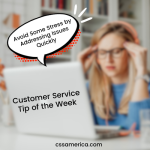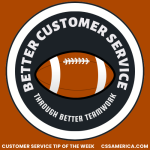
Since the sports world has begun inviting fans back to their events on a limited basis, CSS has been fortunate to work on multiple events with our sports clients. Much of our work is fan research-oriented, where before or after events, we are engaging fans to identify expectations, potential concerns, and overall experiences. Needless to say, we’ve had a ton of lessons learned that we’re sharing with you today.
Find the Customer’s Sweet Spot
Every event is going to have precautionary measures – protocols to utilize in order to keep staff and fans comfortable and safe. Realize that you are striving to provide a great fan experience, but part of that great experience involves the fans being comfortable enough to have a good time. So before events, conduct research with fans so you have a sense for what are the most important characteristics or potential protocols that you could put in place, from the fan’s perspective. Understand what their expectations are and their needs are to have the comfort and confidence to have a great experience. Before trying to do too much or too little from a sanitization perspective, make sure you have an understanding of those key perception drivers from the fan’s perspective so you have a better chance of hitting their sweet spot for protocols.
Educate New AND Old Customers
Most sports organizations, if they do any pre-event education with fans, tend to tailor those communications to the first-time fans. This is being done for obvious reasons – first-time fans are the least experienced in how to navigate the fan journey and how to do their part to have the best experience possible. But in this COVID world, keep in mind that even long-term fans and season ticket holders have never experienced an event of any kind – particularly a major sports event – within a COVID environment.
Make sure that the educational path you take is geared toward these two distinct groups – the first-time fans and the long-term fans about to have their first COVID event experience. Remember in these times, in order for the customer to be comfortable and confident, you need to become an educator to the fans of what the experience will be like and what THEIR part is in helping to create that safe environment.
Post-event: Research, Refine, Reinforce
Finally, we’re going to discuss post-event activities from 3 perspectives: Post-event Research, Refinement of plans, and Reinforcement.
First, make sure that you’re conducting Post-event Research on the fan experiences and future expectations. You want to know what you did great so you can recognize staff. You want to know what was most appreciated by fans, so you can replicate that action. And you want to know what needs to most be improved upon, because just like the COVID findings and recommendations seem to change every day or every week, the approach for events is going to slightly change every day or every week.
Also make sure that you understand their future expectations. Identify whether their likelihood to return will go up or down based on whether the number of protocols go up or down. Gauge their likelihood to return and their likelihood to bring more people to the next event. Gauge their likelihood to be a repeat COVID Era customer.
Refinement relates to operations and communications. Based on the feedback from the fans, make those adjustments in your operations. If you were successful enough to find the sweet spot in your protocols, then you’re just tweaking your operations event-to-event. In terms of communications, if you do a good job proactively engaging and educating fans and asking how they want to be communicated with, if you do a great job after the fact in your post-event research of asking them what communications were most useful, most used, and most effective, then refine your communication strategy with fans so that you can – again – continuously improve.
Reinforcement relates to changing perceptions. Fans have the experience that they have, and down the road when they’re making their decisions about recommending your event to others, coming back themselves, spending more money with you, the memories that they have and the perceptions they have days weeks and months down the road are going to help them make those decisions. You can impact those down-the-road perceptions. Send them communications about their experience, reinforcing what a great experience that they had, what success that the event had in mitigating negative outcomes from a health perspective, sharing visuals of people having a great time, and highlighting fan comments from post-event surveys about how much they enjoyed their experience and how much the protocols oftentimes enhanced that overall experience.
Take these lessons learned that we’ve gleaned from our client work, and make sure that your COVID Era sporting events deliver a great experience your fans as well.























